#Bernie 2020
Explore tagged Tumblr posts
Text







Pics I took this week plus one photo I found looking for an install I did years ago with the late Alan Hanson on the chain link fence at the Silverlake Resevoir
4 notes
·
View notes
Text
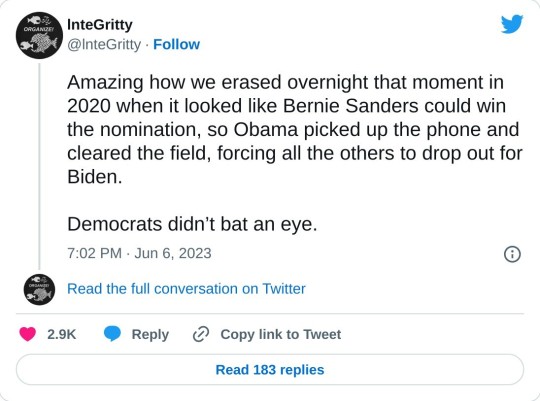
#presidential election 2020#joe biden#barack obama#bernie sanders#night of the long knives#democrats
434 notes
·
View notes
Text
Joni Mitchell & Co. performing Elton John’s “I’m Still Standing” at the Gershwin Prize Ceremony, 2024.
#Joni Mitchell#Brandi Carlile#Annie Lennox#I’m Still Standing#Elton John#Bernie Taupin#Cover#Gershwin Prize#2024#2020s#Video
54 notes
·
View notes
Text
Andrew Prokop at Vox:
The left’s hopes for sweeping change from the 2010s have crashed into the reality of the 2020s. The energy of the Bernie Sanders presidential campaigns and the George Floyd protests is a distant memory. Some members of the Squad have moved toward the Democratic mainstream, while others lost primaries. Several of the progressive prosecutors elected in recent years have been ousted from office (by voters or due to scandals) or appear headed that way. In Democrat-dominated spaces — like cities and mainstream media outlets — there’s been growing pushback against the left. Ambitious progressive rallying cries of just a few years ago, such as defunding the police and Medicare-for-all, are now absent from the discourse. Politicians who assiduously cultivated left activists are now increasingly tacking to the center — most notably Vice President Kamala Harris, who has abandoned many of the positions she took while running in the Democrats’ 2020 presidential primary. Altogether, it’s seemed that progressives have moved from being on the offensive to being on the defensive — in both politics and the nation’s culture.
Of course, it’s not as if progressives’ gains over the past 20 years or so have been entirely wiped away. The Democratic Party remains significantly further to the left than it was a decade ago and certainly two decades ago (see, for instance, my recent article about the rise of the New Progressive Economics). Yet, as bloggers Noah Smith and Tyler Cowen have argued, there are growing indications that the leftward drift of the party and of the country’s culture broadly has stopped. On some fronts, there has indeed been a reversal. “No matter who wins, the US is moving to the right,” Semafor’s David Weigel argued last week, citing “immigrant rights, LGBTQ rights, climate change policies, and criminal justice reform” as issues where progressives are on the defensive. Being on the defensive is not new for the left — it’s the historical norm. Bursts of activist energy and successful reform are typically followed by long stretches where either the new status quo persists or a backlash reverses at least some recent change.
[...]
The era of rising progressive ambitions lasted from about 2005 to 2020
Historical periodization is a tricky thing, but here’s a rough attempt at it. From about 1980 to 2005, the left was mostly irrelevant to national politics. The Cold War was over, and capitalism reigned ascendant. The Republican Party moved right, while the Democratic Party moved to the center. The country cracked down on criminals, unauthorized immigrants, and non-working welfare recipients. 9/11 made patriotism mandatory. Same-sex marriage was viewed as politically toxic. But 2005 to 2020 was, broadly, a period where progressives and the left became increasingly influential inside the Democratic Party, in Democrat-dominated spaces, and in the larger culture. Call it the era of rising progressive ambitions. The disasters of George W. Bush’s second term kicked off the shift, discrediting Republican governance. This enabled the election of the nation’s first Black president, Barack Obama, whose agenda was strikingly ambitious and progressive when compared to the Clinton years. Democrats’ leftward shift accelerated in the 2010s, which saw:
The increased cultural influence of the social justice left, which transformed how much of the country thought and spoke about racial and gender issues (“the Great Awokening”)
The launch of viral protest movements like Occupy Wall Street, Black Lives Matter, and Me Too
The nationwide spread and Supreme Court’s protection of same-sex marriage rights, followed by increased advocacy for trans rights
The rise of more economically progressive and even democratic socialist politicians, as seen in the support for Sanders’s campaigns, the Squad’s arrival in Congress, and party leaders’ embrace of some of Elizabeth Warren’s ideas
A leftward move of mainstream Democrats on issues like immigration and criminal justice, where activists had made the case that status quo policies were cruel and harmful
Increased public discussion about causes like Medicare-for-All, the Green New Deal, and student loan forgiveness
Basically, on a host of issues, the “Overton window” — the boundaries of which political and policy ideas are deemed fit for mainstream discussion, rather than fringe or self-evidently absurd — opened far further left. Trump’s election didn’t stop the left’s rising influence. Indeed, it intensified it, raising the stakes of politics and heightening passions. (Trump’s rise simultaneously opened the Overton window further right on some issues, as leading Republicans increasingly embraced bigotry and flouted democratic norms.) The assumption spread among Democrats that the establishment’s approach had failed and that bold new progressive ideas were necessary. During the party’s 2020 presidential primary, most candidates — including Harris — scrambled to the left, wooing activist groups. Joe Biden, the most old-school major contender, won, but rather than a full-on pivot to the center for the general election, he embraced much of the progressive agenda. It was a political necessity for helming the Democratic Party of 2020.
[...]
The backlash and disillusionment of the 2020s
Things feel different in the Biden years. In part that’s due to the constraints and disappointments that always exist when a party tries to turn a bold campaign agenda into governing reality. Narrow congressional majorities limited Democrats’ legislative possibilities (and then they lost the House). The conservative Supreme Court, meanwhile, blocked some Biden actions like student loan forgiveness and rolled back abortion rights protections. But the trend was broader. Democrats in cities disavowed police cuts as they struggled with rising crime and complained they couldn’t handle a migrant influx. Corporations have laid off DEI workers. Mainstream media companies, increasingly influenced by progressive causes (and sensitive to left criticism) in the 2010s, are now more forthrightly asserting their journalistic independence and challenging progressive ideas. Activism in protest of Israel was met with fierce pushback at universities. Commentators started declaring that “wokeness” had peaked as social justice controversies grew less intense and frequent.
[...]
All of this has happened before
Meanwhile, there’s also been a conspicuous decline of energy and intensity among progressive activists. While many certainly remain committed to their longtime causes, others have disengaged or shifted their focus to opposing Israel’s war in Gaza (an issue that bitterly divides the Democratic Party and where Democratic leaders are disinclined to embrace the left). Perhaps if Trump wins, progressive energy would surge again in opposing him — but perhaps too many people are now burned out and apathetic, and the mobilization won’t match the bygone days of Trump’s first term. And a backlash against Trump’s governance would not necessarily spur the Democrats to resume their leftward march. Activists naturally get disappointed and disengaged when major change proves elusive. “Every major social movement of the past 20 years has undergone a significant collapse,” the activist Bill Moyer wrote in 1987, “in which activists believed that their movements had failed, the power institutions were too powerful, and their own efforts were futile.” Fatigue, burnout, and organizational crisis then ensue; some move on to new causes.
This Vox article explains how the progressive left has been in defense and retreat mode since 2020 after being in the ascendency since 2005 or so.
#Progressivism#2020 Elections#2024 Elections#2016 Elections#Bernie Sanders#The Squad#Alexandria Ocasio Cortez#Kamala Harris
21 notes
·
View notes
Video
youtube
Elton John - Step Into Christmas, 1973
“Step Into Christmas” was released in 1973 and reached #1 on the Billboard Christmas Singles chart. During the instrumental break, Elton’s lyricist Bernie Taupin can be seen “hitting” the gongs (actually played by percussionist Ray Cooper), after which Elton holds up his beloved Watford Hornets Football Club membership card.
youtube
Over 50 years after Elton’s performance, the 2024 Step Into Christmas video starring Cara Delevingne finds the video production team frantically trying to get the set ready for his arrival as they attempt to make it “Christmassy enough”. Despite the addition of balloons and confetti, chaos reigns as they wrangle an escaped turkey, fail to book a real reindeer and tackle a fan who storms the set, all whilst Cara brilliantly mirrors Elton’s choicest dance moves and iconic facial expressions from the original video.
#youtube#elton john#step into christmas#1973#1970s#2024#2020s#bernie taupin#msn#utimate classic rock#music#video#remake#original#cara delevingne#christmas#legend#icon#past and present#now and then#audio
11 notes
·
View notes
Text
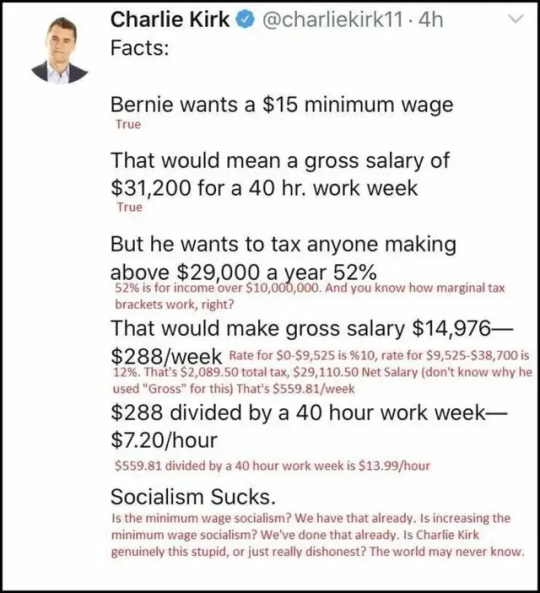
#us politics#republicans#conservatives#twitter#tweet#turning point usa#charlie kirk#sen. bernie sanders#minimum wage#raise the minimum wage#$15 minimum wage#socialism#fact check#big facts#2020
197 notes
·
View notes
Text
my roommate was in the living room and misread something on the news and screamed “BERNIE SANDERS PASSED AWAY?!”
i’m not even slightly exaggerating when i tell you i nearly slipped to my demise in the shower
#bernie they could never make me hate you#sanders 2020 is the loss of my life#sweet little grandpa#bernie sanders
10 notes
·
View notes
Text
Its so funny talking to cisguy classmates about us elections because they always assume i believe democrats were supposed to win. Babygirl lets be forreal
#barking#in high school people were so surprised when i said i thought bernie had no chances in 2020... im transgender not stupid...
11 notes
·
View notes
Note
Genuinely asking who are you planning to vote for in November? I'm not a fan of Kamala by any means but want to avoid Trump even more
at the moment its jill stein, she has actual good policies like universal health care and does not support sending arms to israel. (i will not vote for ANY one who supports the genocide in gaza, and that goes for democrats as well)
many will say its a wasted vote, but I think voting for the party who's only policy is 'you dont want the red team to win do you?' and empty promises is sort of a wasted vote in itself.
#coming from someoen who vote hillary in 2016 and text banked for bernie in 2020#you see enough bullshit from the dems where its like.. ok im wasting my fuckin time here
15 notes
·
View notes
Text

3 notes
·
View notes
Note
Do you think Biden would have beaten Trump had he run in 2016? I know Biden stepped aside because because of his son, but it also seems likely he stepped aside for Clinton.
Yes, I do think that Biden would have beaten Trump in 2016. I don't know how Biden would have handled a campaign at that time with the death of his son having taken place much more recently, but if he could have emotionally handled the rigors of a full-on Presidential campaign at that time, I think he would have beaten Trump in the general election.
The question to me is whether or not Biden could have won the Democratic nomination in 2016 if he had run against Hillary Clinton and Bernie Sanders. Obviously, Biden was younger at the time than he is now and still a much better retail campaigner than Hillary ever was, but I don't know if a Biden campaign in 2016 would have had the same energy as the Sanders campaign that year -- either from the grassroots or from the top-down. It would have been a much different campaign than 2020, as well, because that one took place during the pandemic and Biden was able to run against an historically unpopular incumbent in the midst of botching the worst public health crisis that every voter in America had ever lived through.
The other big question if Biden had run in 2016 is the role of Barack Obama. In 2016, Biden was the incumbent Vice President, finishing his second term of a partnership with President Obama that ended up being one of the closest personal and political relationships that a President and Vice President ever had. But it is no secret that President Obama did not believe that then-Vice President Biden was the best choice to succeed him. Biden's emotional well-being after the death of his son in May 2015 certainly worried Obama, but in books and reporting since that time, it's been apparent that Obama believed that Hillary Clinton made more sense as his successor in 2016 than Biden for a number of reasons. That ultimately resulted in some hurt feelings on the Biden side at the time when Obama seemed to be urging Biden to step aside in 2016 while the Vice President was still considering a potential run. It never impacted Biden's loyalty to the Obama Administration or truly got personal, but it was especially troubling to Biden because he still had not made a final decision about a potential 2016 campaign and one of Beau Biden's dying wishes was that his father would run for President. Obama never directly discouraged Biden from running in 2016; he thought that Biden earned the right to make his own decision about the race, but he was worried about Biden's emotional state in the wake of Beau's recent death, he worried that Biden wasn't the right candidate to defeat Hillary or Bernie for the nomination, and he worried that a potential Biden loss -- either in the primaries or the general election -- would tarnish Biden's overall political legacy and possibly come across as a repudiation of the Obama Administration eight years in the White House.
Of course, Trump's victory over Hillary in 2016 gave Obama's successor the opportunity to immediately start reversing many of Obama's accomplishments and reset the hope and change represented by Obama's successful 2008 campaign. And the irony is that the crucial, traditionally-Democratic blue-collar voters that Hillary Clinton's campaign tended to overlook in 2016 are the same voters that Biden has spent a significant portion of his political career representing and connecting with. So in 2016, Trump won battleground states like Michigan, Wisconsin, Iowa, Pennsylvania, and Ohio that Obama had won in both 2008 and 2012. Without those states in 2016, Trump wouldn't have defeated Hillary Clinton, and when Biden did run against Trump in 2020, his victories in Michigan, Wisconsin, and Pennsylvania (Trump once again won Ohio and Iowa) were crucial in the Electoral College.
#History#Presidents#Presidential Elections#Politics#Presidential Politics#2016 Election#2020 Election#Joe Biden#President Biden#Hillary Clinton#Barack Obama#President Obama#Donald Trump#President Trump#Elections#Presidential Campaigns#2016 Democratic Presidential nomination#Bernie Sanders#Democratic Party
29 notes
·
View notes
Text
Older generations and their obsession with weight is crazy. Like i was talking to my mom about my dietary changes that im doing to fix my digestive issues shes just like oh you look better youve lost weight. Like this was not at all the point of this. I just want my digestion to work correctly i dont care about that.
#she means well but its kinda triggering tbh#the entire reason my diet was so bad was bc i genuinely thought that was the best thing i could do to avoid an ed relapse#to clarify i mean in the sense of eating whatever i wanted and not worrying about the effects on health#which i was aware was a subpar option but i thought it was the best since every time i tried to change my diet to be ��healthier”...#...it just devolved into ed behavior#obviously that didnt turn out well and it was a bad idea but bringing the subject of weight up in that scenario just isnt it#of course she doesnt really know i had an eating disorder in the first place but thats a whole other topic#but she is actually trying to be helpful about these issues and is going to help me set up a doctors appointment bc im kinda daunted by...#...the whole process especially when it comes to making sure the doctor in question is in network#our heathcare system is bad and needs to change which is a big part of why i was so vocal about bernie in the 2020 election#obviously its a little late for that but hopefully we can elect a president in 2028 who will help make substantial change#its definitely not going to be from the president elect with concepts of a plan for healthcare#but thats also off topic#eating disorders.#ask to tag#turning off reblogs bc i dont want people posting my vent about my personal heath problems on their own blogs lol#not that i think people would but just in case
2 notes
·
View notes
Text
Bernie keeps getting worse by kissing Trump & Musk's asses & I am so embarrassed at the fact that I voted for this guy in the primaries twice thinking he was super progressive. 💀
#rabbit rambles#granted I was 18 in 2016 & it was my first time voting BUT STILL#I obvs voted all blue in the general#but primaries I went for Bernie because “oh hey democratic socialist. Cool!”#I even went to one of his rallies in 2020#if that tells you how much I looked up to him when I was younger#I DID already lose some of my interest in him by 2020 though#but like...#phew#I am absolutely never listening to anything this guy says again. fuck him.
2 notes
·
View notes
Text

2 notes
·
View notes
Text
imagine how different the world would be if bernie sanders had won the primaries in 2016
#but also. imagine how different the world would have to be for that to happen 💔#also in this scenario i’m fooling myself into believing that bernie would win over trump#but like imagine having bernie from 2016-2020. all the pre covid trump anxiety and then imagine how different the pandemic could’ve gone#ohhhhhhhh it’s a hard life
2 notes
·
View notes
Text
Was Sander's Robbed in 2020?
Ok so lets walk to the past for a bit. Its 2020, the Democratic primary is getting heated. Biden keeps leading in all the polls, but after three primary elections, he has been coming off short. Moderates are panicking and it looks like Bernie Sanders might be able to get the nomination after all. He was counted out after the heart attack, and yet he kept on going.

So Sanders going in 2020 had two options for how to run his campaign. About 30% of the party loved him, about 20% of the party absolutely hated him, and 55% were mixed more ambivalent about him. He could either
Try to win over the parts of the party that aren't already supporting him, in particular the black community (Sanders does this a bit with the Latino democrats, his latino outreach very impressive and very underreported in the Democratic party
Try to hold unto your 25-30% of the party and hope rest of the vote is split between all the different moderates, so he can win with a plurality of the vote. due to the weirdness of the Democratic primary rules he can still win the nomination even without the majority, the winner only needs a plurality. if the moderate votes are split between Biden, Mayor Pete, Bloomberg, and Klobuchar, then Sanders could squeak in a victory with less than a third of the party.
Biden is the frontrunner, is polling ahead of everybody else, particular among the all important African-American segment of the democratic electorate. However he isn't beloved and there are a ton of Moderates running against him, and all of them are focused on attacking Biden in the hopes that they could take his place.

Sanders too option 2, which was risky. Winning with a plurality rather than a majority always leaves a lot of sore feelings, and had Sanders won the 2020 primary he would have to have dealt with the 70% of the electorate who didn't vote for him feeling sore, but maybe he could have handled it, we will never know. The advantage of his plan is that he just needed to hold unto his base, who already loved him. The danger is that if the moderates ever managed to rally around a single candidate, suddenly he is very outnumbered. Risky play but he did it. This is the same plan that trump use to win the Republican primary in 2016 (to be clear, that isn't a moral judgement on sanders, Trump isn't bad because he won with a plurality, he is bad because he is a fascist). There is one key difference though the Republican primary uses a winner takes all approach, so who ever wins the state gets all of the points, which allowed Trump to expand his lead. This is because Republicans don't believe in democracy.

Those are some great mittens
So far this plan has been working well for Sanders. The moderates have split the vote, Sanders won Nevada, New Hampshire and either won Iowa or it was so close that he basically won Iowa. Biden has yet to do well in any of the first three states.
But Then, South Carolina, the first state with a large black electorate. Biden secures a key endorsement from US Representative and Civil Rights activist Jim Clyburn. The results were a pretty stunning turnaround for Biden, who won 49% of the votes and got 39 of the delegates. Sanders came in second, with 20% of the vote and 15 of the delegates. Buttigieg, Warren, Steyer, and Klobuchar didn't get a high enough percentage of the vote to get any delegates.
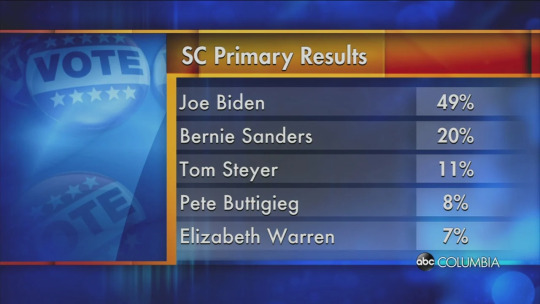
Biden almost won more than the rest combined.
So lets take a moment to talk about the US primary system, because it is both illogical and needlessly complicated. Rather than have all the states vote at once like a normal fucking country, each individual state plus the territories plus DC hold there own primary, most of which are not in order. So for example, the great state of NY, fourth largest state in the country and the center of the global economy, has its primary at the literal end of the process. So yeah, I've never in my lifetime gotten to have any effect on a presidential primary, because the race is already over by the time it gets to NY. So who wins a primary is not necessarily the most popular person with the party, its who ever can stay in the race longest, its a marathon. A super popular candidate could still drop out if they aren't popular in the first few state. Maybe Elizabeth warren was super popular in New York and if she had been able to hold unto those state she would have won, but we will never know. this system sucks, and I hate it.

So the way the primary goes down is that you have 4 elections from individual states. Iowa, New Hampshire, Nevada, South Carolina. Then you have something called Super Tuesday, where Virginia, North Carolina, Maine, Massachusetts, Vermont, California, Oklahoma, Texas, Minnesota, Colorado, Alabama, Arkansas, and Utah all go at once. So basically you go from 4 individual states to a fuck tone of state (including the two largest) all at once).
So another critical thing about the democratic party is demographics. While the republican party is a white Christianity identity party, the democratic party is a diverse coalition. The most important part of that is the African American vote, who have steadily become the deciding vote in the Democratic party since the 60s. About 90% of African American voters are democratic, and African Americans make up just over a quarter of the Democratic party. They are also by far the most organized and proactive voters, due to years of having to fight against voter suppression (especially in the South). The black electorate in the democratic party is one of the parties greatest advantages, and it also why the party has become steadily less racist every year (Obama really accelerated this process). To be clear this is a good thing, the Democratic party is better for it.
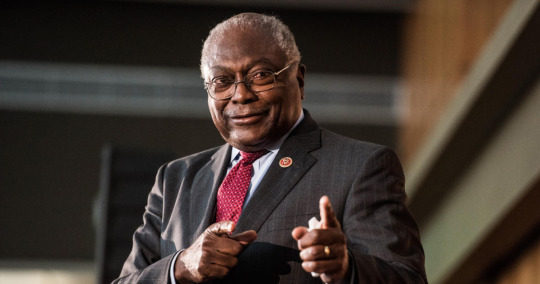
For a series of very complicated reasons I could get into another time, Sanders had never done particularly well with African American voters and Biden has. This isn't universal, the African American community is not a monolith and has a diversity of views but that is how the demographics played out generally in the primary. Most importantly, apart from Biden was the only candidate, moderate or progressive, who seemed to excite the African American voting bloc.
The reason why this matters is that Iowa, New Hampshire, and Nevada don't have very large black populations, Iowa and new Hampshire are lily white, and Nevada is less than 10% African American. Despite being more than a fourth of the party, the first three states are not representative of the African American vote (maybe we should have one nation wide election eh?)
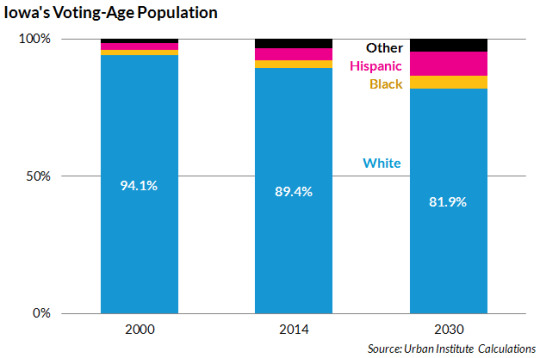
So once biden won South Carolina, it became obvious that A) Biden's defeats in the first three states were not affecting his popularity in the larger states B) none of the other moderates had any real African American support. This is what leads to the supposed "betrayal"
The Day before Super Tuesday, Obama called up the remaining moderates, and convinced most of them to drop out and endorse Biden. They did so, and it basically shattered Sander's chance of winning. With most of the moderates unified, Biden won 10 states to Sander's 4, wracking up 726 delegates to sanders 505. Biden got 286065 votes to sanders 74,755. Not only was this a great victory for Biden, after super Tuesday all of the other moderates withdrew, allowing him to crush Sanders going forward. Biden had 2709 Delegates to Sanders 1,113, but more importantly Biden won 51% of the votes, with sanders getting 26%. Some Sanders fans have blamed Elizabeth Warren for not dropping out, but even if Warren had and every one of her votes had gone to standers (and there is a lot of evidence to suggest a third of her votes would have gone to Biden), that would only make Sanders at 33% to 51%.
To put this in raw numbers, Biden won 19 million votes. Sanders had just under 9.7 million. Biden won 10 million more votes than Sanders (Elizabeth warren got 2.8 million)

So I see a lot of leftist types claim that this was an example of democratic treachery, that the DNC party robbed sanders of his chance of winning, this was Nixon style Ratfuckery that destroyed Sander's populist campaign to put Biden, who nobody likes anyway, in charge. And as a progressive who didn't want Biden to win, I have to say it sucked...but that wasn't a cheat.
Biden won the popular vote, love him or hate him, he did win more than half of the democratic votes, that makes him the candidate, that is how democracy works, sometimes you lose. Some have claimed that Obama calling up the other moderates and getting them to drop out was a cheat but....how? The moderates knew they couldn't win after South Carolina, and they were ideologically closer to Biden, so they dropped out and endorsed the person they agreed with more. Most Sanders fans wanted Warren to drop out, so I knew you guys understand that importance of consolidating behind a winning candidate. Thats just good politics, the fact that Sanders didn't bother to try to court other candidates to drop out is actually a major weakness of him as a candidate. If the situation had been reversed, and the moderates were trying to win with only 30%, wouldn't you guys want the other progressives to drop out behind sanders
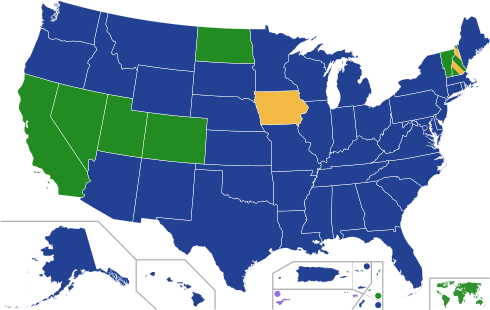
Because Sanders is a populist, and his rhetoric is so tied to the idea of "The people rising up against the elites" that idea that he lost demographically is sort of a trauma his more radical followers can't really deal with, so they retreat to conspiracy theories. Remember, a conspiracy theory is something people turn to to avoid facing a difficult truth. If you identify yourself as populist, and you lose demographically, you have to face some difficult questions. Maybe sanders was the wrong candidate? Maybe he made mistakes? Maybe his fanbase sabotaged his chance of winning, maybe his hardcore fans make a mistake in there understanding of the political situation. Maybe he didn't do anything wrong, it just wasn't the year for a progressive? Or maybe Sleepy Joe Biden actually was a more cunning political operator than they gave him credit for and they were duped.
Or most difficult of them all. Maybe most Americans just don't agree with Sander's position?
Those are hard questions, but you kinda of have to answer them if you want to be a progressive who accomplishes things. I might do later posts that address them if people are interested.
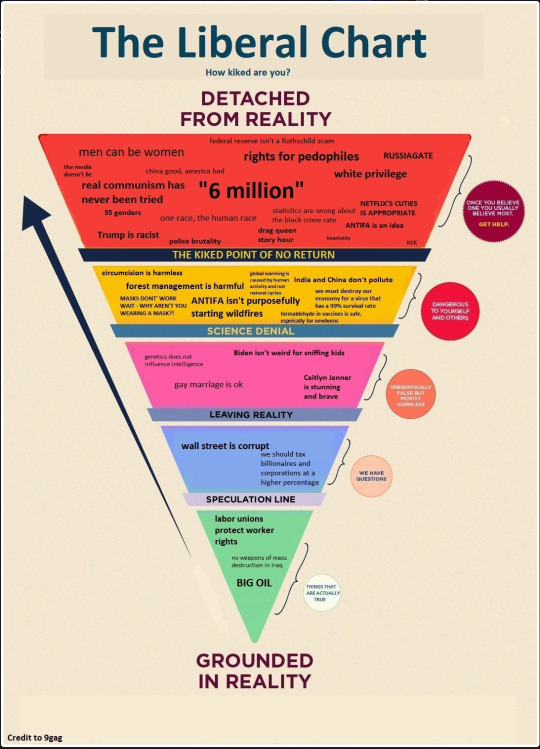
There is a segment of the left who are moving into purple
However, for those who can't face difficult choices, they retreat to conspiracy, and they claim that Sanders was robbed

Hey you know who hasn't been saying that Sanders was robbed by the DNC? Bernie Sanders, because he is an adult who understands how democracy works. He lost, he took it gracefully and then he endorsed and campaigned for the winner, cause sanders actually cares about the cause and not faux revolutionary nonsense.

(Fun fact, Biden and Sanders are friends Irl. Like no joke, those two get along personally)
I didn't vote for Biden in the primary and I was not happy when he won the Primary. However I never thought Biden was senile, or a fool, or a hack, I think that he is a very cunning politician who has a public persona that encourages people to underestimate him And become people can't stand the idea that they could lose to Biden, they retreat into fantasy. This is why MAGA denies the election, they can't face the reality that most of the country doesn't like them, and they can't admit that they lost to a man who doesn't fit there mental image of an impression leader
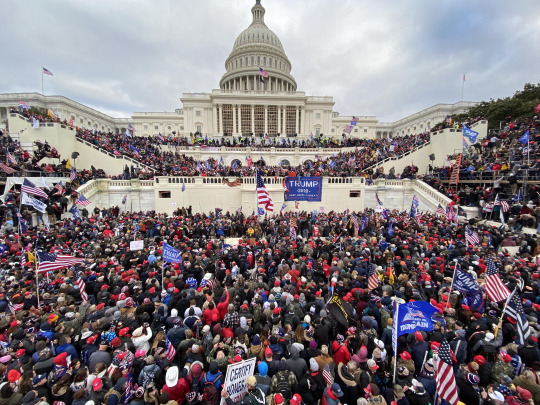
Yeah...that ends well.
#neglected historical fact#historical fact#ask evilelitest#bernie sanders#Elizabeth Warren#Joe Biden#jim clyburn#2020 primary#Democratic party#Conspiracy theories#Democracy#Donald Trump
25 notes
·
View notes